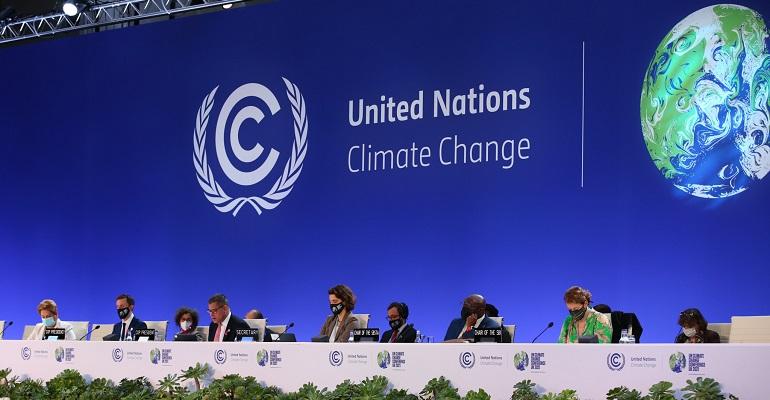The Clydebank Declaration was launched at COP26 with 19 states with the aim to set zero-emission maritime routes between two or more ports.
In a Mission Statement the signatories said they aimed to support the setting up of at least six green shipping corridors by the middle of the decade.
“It is our aspiration to see many more corridors in operation by 2030. We will assess these goals by the middle of this decade, with a view to increasing the number of green corridors,” they stated.
The voluntary participation of ship operators is seen as a significant element of success in the green shipping corridors.
Ingrid Irigoyen, Associate Director for Ocean and Climate at The Aspen Institute, commenting on the declaration said: “Establishing zero-carbon shipping corridors is a clear and necessary next step in this transition. We’ll need to align stakeholders across the shipping and fuels value chains in specific geographies, and having this group of governments ready and eager to support those efforts is extremely helpful.”
The Aspen Institute is backing the recently launched coZEV initiative where major cargo interests have pledged to progressively switch their ocean freight to zero carbon fuels by 2040.
“As expressed in the coZEV 2040 Ambition Statement, cargo owners are interested in supporting concrete zero-carbon corridor projects,” Irigoyen added.
The signatories to the Clydebank Declaration are: : Australia, Belgium, Canada, Chile, Costa Rica, Denmark, Fiji, Finland, France, Germany, Republic of Ireland, Japan, Republic of the Marshall Islands, Netherlands, New Zealand, Norway, Sweden, The United Kingdom of Great Britain and Northern Ireland, The United States of America.
Meanwhile the Getting to Zero Coalition a new study ‘The Next Wave: Green Corridors’ showing it says that developing Green Corridors can cut through this complexity and accelerate the transition to zero-emission shipping.
The study looked at three specific corridors – the Asia – Europe container trade, the Korea-Japan-US pure car carrier (PCC) corridor, and the Australia – Japan iron ore corridor. The cases studies involved 30 companies, many active on the particular trades in question.
“Green corridors will enable us to go from ambition to action. However, there will still be a cost gap between fossil-based shipping and zero-emission shipping of the order of 25% to 65%. Targeted government action to close that cost gap on corridors could pay big dividends for the transition overall,” said Faustine Delasalle, Co-Executive Director, Mission Possible Partnership.
.
Copyright © 2024. All rights reserved. Seatrade, a trading name of Informa Markets (UK) Limited.
Add Seatrade Maritime News to your Google News feed.  |

